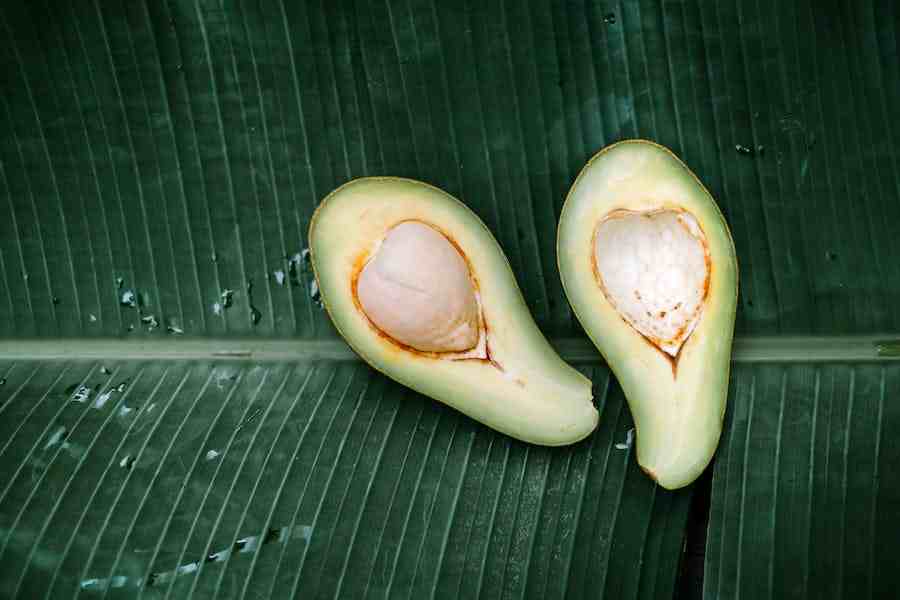
Avocados have earned a special place in the hearts of food enthusiasts for their creamy texture, rich flavor, and impressive nutritional profile. However, the tricky part comes when determining their ripeness. The question that often arises is whether you can eat an unripe avocado, and if so, is it safe and palatable? In this article, we’ll delve into the world of avocados, exploring their various stages of ripeness, the potential risks associated with consuming unripe ones, and alternative ways to enjoy this beloved fruit when it hasn’t reached its peak ripeness.
Can You Eat An Unripe Avocado?
Yes, you can technically eat an unripe avocado, but it may not be enjoyable due to its bitter taste and hard texture. Eating it in small amounts or cooking it can make it more palatable. However, it’s generally recommended to wait until avocados ripen for the best flavor and texture.
Understanding Avocado Ripeness
Understanding the ripeness of avocados is essential to determine whether you can eat them in their unripe state. Avocados go through distinct stages of ripening, each with its own characteristics. These stages are unripe, firm, ripe, and overripe.
In the unripe stage, avocados are typically green and firm to the touch. They often feel heavy for their size. The skin may also have a slightly glossy appearance. When you slice into an unripe avocado, you’ll find that the flesh is hard and pale green. The taste is bitter and astringent, making it less enjoyable to eat raw.
The firm stage indicates that the avocado is on its way to ripening but is not quite there yet. At this point, the fruit is still firm but may yield slightly to gentle pressure. It’s often suitable for slicing or dicing for use in salads or as a topping.
The ripe stage is what most people aim for when enjoying avocados. Ripe avocados are dark green to purplish-black, depending on the variety, and yield to gentle pressure when squeezed. The flesh is creamy, and smooth, and has a mild, buttery flavor. Ripe avocados are perfect for making guacamole, spreading on toast, or adding to sandwiches and salads.
Benefits Of Eating Ripe Avocados
Eating ripe avocados offers a range of benefits, making them a popular choice for both taste and nutrition. Here are some key advantages of consuming ripe avocados:
- Enhanced Flavor and Texture: Ripe avocados have a creamy, buttery texture and a mild, nutty flavor. They are enjoyable to eat on their own or as an ingredient in various dishes, adding richness and depth to the taste.
- Nutrient-Rich: Ripe avocados are packed with essential nutrients. They are an excellent source of healthy monounsaturated fats, which can help improve heart health and satiety. They also provide dietary fiber, vitamins (such as vitamin K, vitamin C, and several B vitamins), and minerals (including potassium and folate).
- Improved Nutrient Absorption: Avocados contain fat-soluble vitamins like vitamins A, D, E, and K. The healthy fats in ripe avocados can enhance the absorption of these vitamins when consumed with other foods.
- Heart Health: The monounsaturated fats in avocados may help lower bad cholesterol levels, reducing the risk of heart disease. The potassium content in avocados also supports healthy blood pressure levels.
- Weight Management: Despite being calorie-dense, avocados can contribute to weight management due to their high fiber content and ability to promote feelings of fullness, potentially reducing overall calorie intake.
- Skin and Hair Health: The vitamins and antioxidants in avocados can benefit skin and hair health, promoting a radiant complexion and strong, shiny hair.
- Eye Health: Avocado contains lutein and zeaxanthin, antioxidants that are beneficial for eye health and may reduce the risk of age-related macular degeneration.
- Bone Health: Ripe avocados are a good source of vitamin K, which plays a role in bone health by assisting in calcium absorption and bone mineralization.
How To Use Unripe Avocados?
Unripe avocados can be challenging to eat raw due to their bitter taste and firm texture, but there are several creative ways to use them in your culinary endeavors. Here are some ideas on how to use unripe avocados:
Avocado Fries: Slice unripe avocados into thin strips, dip them in a batter (e.g., egg wash and breadcrumbs), and deep-fry or bake until crispy. Serve with your favorite dipping sauce.
Avocado Soup: Blend unripe avocados with ingredients like broth, yogurt, lime juice, and seasonings to create a creamy and chilled avocado soup. Garnish with herbs and a drizzle of olive oil.
Avocado Smoothie: Combine pieces of unripe avocado with other fruits like bananas, mangoes, or berries, along with yogurt or milk, to make a nutritious and creamy smoothie.
Avocado Salad: Dice unripe avocados and mix them with other fresh vegetables like tomatoes, cucumbers, and onions. Add a zesty dressing to enhance the flavors.
Cooking: Consider cooking unripe avocados to soften them and improve their flavor. Sautéing or stir-frying avocado slices in a little oil can help soften them and reduce bitterness.
Grilled Avocado: Halve unripe avocados, remove the pit, brush them with oil, and grill until they have grill marks and are slightly softened. This method adds a smoky flavor and changes the texture.
Avocado Salsa: Dice unripe avocados and mix them with tomatoes, onions, cilantro, lime juice, and spices to create a chunky avocado salsa. It’s great as a topping for grilled meats or as a dip.
Avocado Relish: Create a relish by combining unripe avocado chunks with ingredients like red bell peppers, red onions, vinegar, and spices. It can be a delightful accompaniment to grilled fish or chicken.
Avocado Fritters: Mash unripe avocado flesh and mix it with flour, seasonings, and water to form a batter. Drop spoonfuls of the batter into hot oil to make avocado fritters.
Avocado Tempura: Coat slices of unripe avocado in tempura batter and deep-fry them until golden and crispy. Serve with a dipping sauce like soy sauce or sweet chili sauce.
Final Word
In conclusion, unripe avocados may not offer the same creamy goodness as their ripe counterparts, but with a bit of creativity, they can still find a place in your culinary repertoire. Whether you choose to fry, blend, grill, or sauté them, unripe avocados can bring a unique texture and flavor to your dishes. So, the next time you encounter an unripe avocado, don’t discard it—explore the world of possibilities it offers in the kitchen.
FAQ’s
Can You Eat An Unripe Avocado Raw?
Yes, you can, but it may have a bitter taste and firm texture. Consider other preparation methods like cooking or blending to make it more palatable.
How Can You Ripen An Avocado Quickly?
Place it in a paper bag with a banana or apple, which releases ethylene gas, accelerating the ripening process.
Are There Health Risks To Eating Unripe Avocados?
Unripe avocados can be harder to digest and may taste bitter. Some people may be more sensitive to the bitterness.
Can You Salvage An Overripe Avocado?
Yes, you can still use an overripe avocado in recipes like smoothies, sauces, or baked dishes, where the texture won’t matter as much.
How Do You Tell If An Avocado Is Ripe?
Gently press the avocado. If it yields slightly and feels soft but not mushy, it’s ripe. Additionally, you can check under the stem; if it’s green, the avocado is likely ripe.








